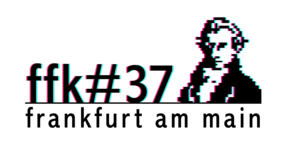NFDI4Culture Metadata API
Metadata of all resources as Linked Open Data
The NFDI4Culture portal offers all content as Linked Open Data over this RESTful API. The API implements the Hydra-Specification of the W3C Hydra Community Group. The semantic description of this API can be retrieved by clients via the Hydra documentation file (JSON). Each metadata record offered via this API can also be retrieved in one of following machine-readable LOD serializations. The API is the basis for the Culture Research Information Graph, which together with the Culture Research Data Graph forms the Culture Knowledge Graph (for more details see this presentation).
Persistent Identifier: <https://nfdi4culture.de/id/E5365>
CRDA workshop at FFK37: Research data management for early career researchers in film and media studies
Retrieve record as:
- image
-

- url
- https://nfdi4culture.de/news/crda-workshop-at-ffk37-research-data-management-for-early-career-researchers-in-film-and-media-studies.html
- name
- CRDA workshop at FFK37: Research data management for early career researchers in film and media studies
- headline
- CRDA workshop at FFK37: Research data management for early career researchers in film and media studies
- text
The 37th Film and Media Studies Colloquium (FFK) took place at Goethe University Frankfurt from 20 to 22 March 2024. The focus of the annual, non-institutionalised conference, which is organised by young academics on their own initiative, is on current research trends from the academic mid-level faculty. Master students, doctoral candidates and postdocs are invited to present their research topics and current projects - such as Master's theses, dissertations, third-party funded projects, postdoc studies, habilitations, etc. - for discussion.
Since the FFK usually includes a relatively large number of young researchers whose projects are still at an early stage or at least not yet completed, the conference is a good opportunity for NFDI4Culture and the CRDA in particular to bring these participants into contact with the topics of research data, research data management (RDM) and data skills as early as possible.
For this reason, the CRDA team organised an RDM workshop, which was designed as part of the task area's series of RDM basic courses with a focus on this group of researchers. During the course, participants learnt about basic concepts and principles of research data management, such as the research data concept and data lifecycle in relation to audiovisual data, the guidelines for good scientific practice, introductions to the FAIR/CARE concept, AV tools, as well as standards and metadata, repositories and open access publication formats.
At various points during the workshop, the participants were invited to actively participate, for example by researching the respective research data policies of their respective institutions or by reporting on their own projects and their own handling of research data. The topics addressed in the course of this reflected a whole range of challenges currently facing film and media studies with regard to the handling of research data: The use of proprietary/non-proprietary software for RDM, the lack of necessary IT skills in relation to data collection and data analysis, the handling of data that has been collected over a very long period of time and does not conform to any standards, the loss of (for example platform-related) research data, the long-term archiving of research data and the publication of data sets in compliance with ethical considerations and legal barriers.
Overall, the workshop format was very well received and the following topics were mentioned for follow-up courses: Practically oriented formats on data systematisation and organisation and direct applications to their own material, as well as legal topics interested the participants beyond the scope of the basic course. In the future, the Cultural Research Data Academy would also like to design further courses as part of university events and thus address the needs of the scientific community and young researchers in particular.
- datePublished
- 2024-03-21T15:00:00+01:00